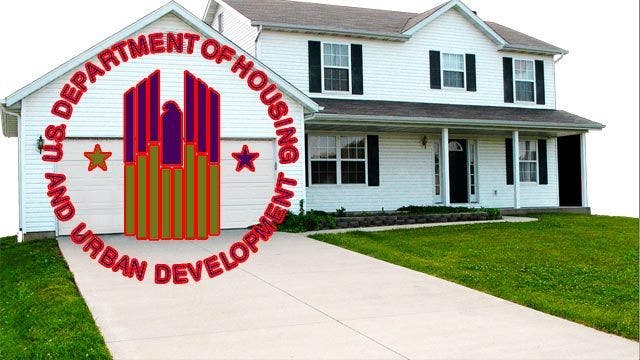Obama administration using housing department in effort to diversify neighborhoods
In a move some claim is tantamount to social engineering, the Department of Housing and Urban Development is imposing a new rule that would allow the feds to track diversity in America’s neighborhoods and then push policies to change those it deems discriminatory.
The policy is called, "Affirmatively Furthering Fair Housing." It will require HUD to gather data on segregation and discrimination in every single neighborhood and try to remedy it.
HUD Secretary Shaun Donovan unveiled the federal rule at the NAACP convention in July.
"Unfortunately, in too many of our hardest hit communities, no matter how hard a child or her parents work, the life chances of that child, even her lifespan, is determined by the zip code she grows up in. This is simply wrong,” he said.
Data from this discrimination database would be used with zoning laws, housing finance policy, infrastructure planning and transportation to alleviate alleged discrimination and segregation.
Specifics of the proposed rule are lacking. Now published in the Federal Register and undergoing a 60-day comment period, the rule, "does not prescribe or enforce specific” policies.
But one critic says it smacks of utopian idealism.
"This is just the latest of a series of attempts by HUD to social engineer the American people," said Ed Pinto, of the American Enterprise Institute. "It started with public housing and urban renewal, which failed spectacularly back in the 50's and 60's. They tried it again in the 90's when they wanted to transform house finance, do away with down payments, and the result was millions of foreclosures and financial collapse.”
Some fear the rule will open the floodgates to lawsuits by HUD -- a weapon the department has already used in places like Westchester County, N.Y., where mayors and attorneys representing several towns, like Cortlandt, are writing HUD to protest burdensome fair housing mandates that go far beyond those agreed to in a 2009 settlement with HUD.
One letter written by Cortlandt town attorney Thomas Wood expresses a common dilemma.
"Cordlandt is mostly residential and has only a few vacant parcels that could be developed for commercial use," he writes. "In order to stabilize the tax base amongst the most affordable in Westchester County, the Town Board needs to encourage the development of commercial property for commercial use."
Rob Astorino, the Westchester County Executive, recently said, "What they are trying to do is to say discrimination and zoning is the same thing. They are not. Discrimination won't be tolerated. I won't tolerate it. Zoning though, protects what can and can't be built in a neighborhood."
Also troublesome to critics is that the HUD secretary, in announcing this proposed rule, blamed poverty on zip codes – rather than other socio-economic factors that studies have shown contribute to poverty.
Read more: http://www.foxnews.com/politics/2013/08/07/obama-administration-using-housing-department-to-compel-diversity-in/#ixzz2bU1yOzu0


No comments:
Post a Comment